We’ve chosen 22 basic questions about prostatitis and its treatment. All answers are written by our leading men’s health specialist, Dr. Speransky Alexei Gennadievich andrologist. We hope that this article will help you and provide the necessary answers to your questions.
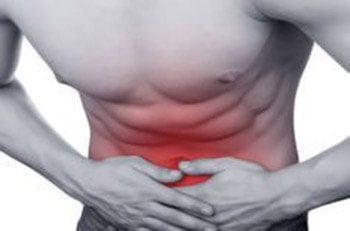
Contents
Prostatitis symptoms: pain, burning, discharge, carping, incontinence
Symptoms of prostatitis are most often of three kinds:
– Disorders of urination: difficult, frequent, nighttime urination.
– Pain symptoms: perineum, lower abdomen, groin pain. Pain may radiate (return) to the scrotum or sacrum.
– Mixed form, in which there are both urinary dysfunction and pain.

Causes of prostatitis?
In bacterial prostatitis
Infection enters the prostate gland from neighboring organs:
– Through blood and lymphatic vessels from a remote inflammatory focus (tonsillitis, maxillary sinusitis, dental caries).
The most common bacteria detected in prostatitis are: E. coli, Klebsiella, Proteus, Staphylococcus aureus, enterococcus.
The role of sexually transmitted infections is discussed: chlamydia, mycoplasmas, trichomonads.
The activity and, accordingly, the manifestation of the inflammatory process depends on the properties of the microorganism, the state of the pelvic organs, their blood circulation, concomitant diseases and other predisposing factors.
In non-bacterial prostatitis
Congestion plays an important role. Violation of blood flow causes swelling, exudation of prostate tissues and creates conditions for the development of an inflammatory process not associated with a bacterial agent.
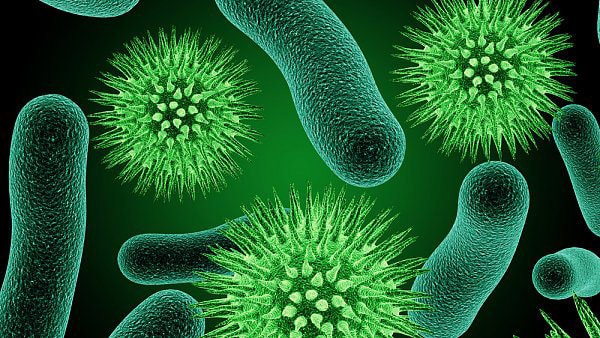
STD and prostatitis
The question of the involvement of sexually transmitted infections in the development of prostatitis is widely discussed in scientific medical circles. There is no unanimous opinion on this issue.
We are among the supporters of a direct link between infections, the occurrence and the course of prostatitis.
What is the danger of prostatitis?
Prostatitis is not life threatening to the patient, the process is chronic in nature, worsening the quality of life.
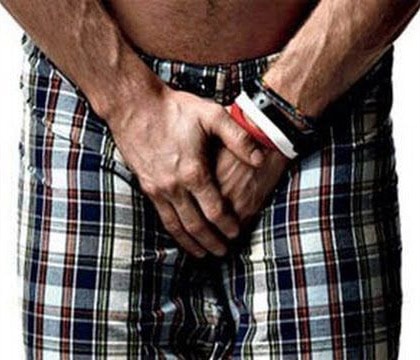
Beginning prostatitis. How to find out? First signs
The first symptoms of prostatitis is a change in the nature of urination: difficulty, frequent urination, frequent urges to urination, especially at night. Discomfort when urinating and pain of varying intensity in the groin area.
Age of prostatitis? This disease of the young and?
Prostatitis is an inflammatory disease, so it can occur at any age. But adenoma or hyperplasia of the prostate – It is a disease of age in men after 50 years and is associated with the development of a benign tumor of the prostate gland.
Chronic prostatitis. Is it possible to cure?
Having a diagnosis of chronic prostatitis implies the presence of changes in the structure of the gland tissues that remain lifelong. As any chronic disease, prostatitis runs through periods of exacerbation and remission – Periods when the patient is not disturbed. Periods of remission with proper treatment and lifestyle can be very long, and the complaints never bother the patient again.
Bacterial and other types of prostatitis
There are different classifications, the most commonly used one was developed by the U.S. Institute of Health in 1995:
Category I. Acute prostatitis.
Category II. Chronic bacterial prostatitis.
Category III. Non-bacterial prostatitis.
– Subcategory III A. Chronic inflammatory pelvic pain syndrome (with leukocytes in prostate secretion and excretion of pathogen).
– Subcategory III B. Chronic non-inflammatory pelvic pain syndrome (without leukocytes in prostate secretion).
Category IV. Asymptomatic prostatitis (with leukocytes in the prostate secretion, but no complaints).
For ease of understanding, the classification can be presented in 3 types:
Acute prostatitis – Proceeds with severe pain, increased body temperature , impaired urination. In the prostate secretion – A large number of white blood cells, which indicates a clear inflammatory process. If it occurs for the first time in the patient. If these symptoms occur in a patient with chronic prostatitis, they are referred to an exacerbation of chronic prostatitis.
Chronic bacterial prostatitis – Intermittent symptoms that bother the patient, usually less pronounced than in acute prostatitis. When diagnosed also increased leukocytes in the prostate secretion, it is possible to identify the causative agent of inflammation.
The most problematic for diagnosis, is non-bacterial prostatitis , or so-called chronic pelvic pain syndrome. This is due to the fact that the complaints are very similar to prostatitis, but associated with diseases of other organs and systems, in which it is not possible to detect signs of inflammation and pathogenic bacteria: pelvic muscle spasm, violation of interaction between the muscles of the bladder and its sphincter, anatomical disorders – Urethral stricture (narrowing), leads to inflammation due to increased pressure inside the prostate lobules.
Who treats prostatitis – an andrologist or a urologist??
Prostatitis is treated by both a urologist and an andrologist.
An andrologist – Is a urologist who specializes in diseases of the male genital and reproductive system.
Methods and schemes of prostatitis treatment
All prostate treatment regimens consist of drugs:
– drugs that improve the contraction of the prostate and bladder with simultaneous relaxation of the sphincter.
Good results are obtained by the simultaneous administration of medications and physical therapy (prostate massage, complexes for the treatment of prostatitis – Androgyn, Aeltis and others).
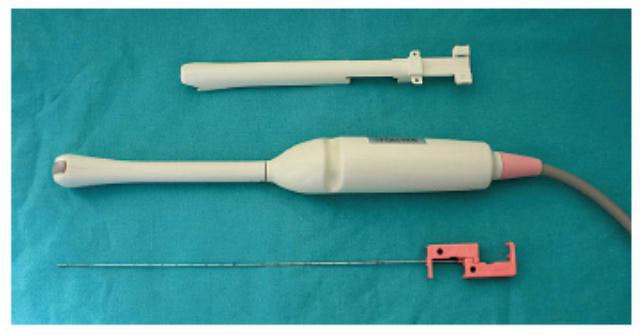
What tests are taken for prostatitis?
For prostatitis diagnosis It requires a consultation with a urologist (andrologist) to gather the patient’s complaints, history, microscopy of prostate secretion and ultrasound diagnosis.
For diagnosis, a transrectal ultrasound examination of the prostate (TRUS) and prostate secret taken after a prostate massage are used for microscopic examination.
Additionally, cultures of the prostate secretion for bacterial flora with determination of sensitivity of the microflora examined to antibiotics may be used.
Surgical interventions and operations for prostatitis
In case of prostatitis, surgeries are practically not used. Except for prostatic abscess – a process in which foci with purulent contents are formed.
Can the prostatitis be cured by yourself??
If there are pronounced symptoms, it is better to be treated by a specialist, the time factor plays an important role in the treatment, because the longer the inflammation, the greater the probability of irreversible changes in the organ.
But it is better to be prophylactic because no doctor can do it for you.
Avoiding hypothermia, congestion from prolonged sitting, sexually transmitted infections, and irregular sexual activity are all ways to effectively prevent prostatitis.
Drugs for prostatitis: finalgon, vitaprost, prostamol, ceftriaxone, doxycycline, omnix and others
Drugs for the treatment of prostatitis are divided into groups according to the mechanism of action:
Antibacterials (antibiotics) Are prescribed only if there is a diagnosis: chronic bacterial prostatitis. Fluoroquinolones, macrolides and the doxycycline group of drugs are used most often.
Alpha-adrenoblockers: Are prescribed to restore impaired urination by increasing bladder contraction and relaxing the detrusor.
Numerous group of biogenic stimulants and herbal preparationsVitaprost suppositories, prostatylene, prostamol.
Effective treatment is only possible with a correct diagnosis, because there is no universal medication for all types of prostatitis. Often patients take medications to treat prostatitis, in the presence of a completely different disease, but having similar symptoms.

Nuts, roots, parsley, cucumber, honey, bees, leeches and other folk methods of treating prostatitis
Folk methods of treatment have the right to exist, but you must understand that to select the folk method that will suit you is not easy. On the query “Traditional methods of prostatitis treatment” the search engine produces 70 million. results.
No one has studied the effectiveness of these folk methods. Just because it helped one patient with this treatment (and whether it helped or not) does not mean that it will help you.
Exacerbation of prostatitis after treatment. Remission, relapse
All chronic inflammatory processes have periods of exacerbation and remission, when the patient is not bothered by anything. The duration of remission may vary and depends on many factors, including whether the patient undergoes prophylactic treatment. Patients who carry out prophylactic treatment periodically, without waiting for well-being to worsen, tend to have fewer relapses.
Prostate massage at home. Is massage for prostatitis always necessary??
Prostate massage can also be done at home if you are married to a nurse in a urology office. Any medical procedure has its own nuances and nuances. Determine the same indications for this procedure can only be a doctor, so in some diseases: adenoma of the prostate (in the presence of acute urinary retention) prostate massage is not desirable, and with tumors – Tumors are contraindicated.
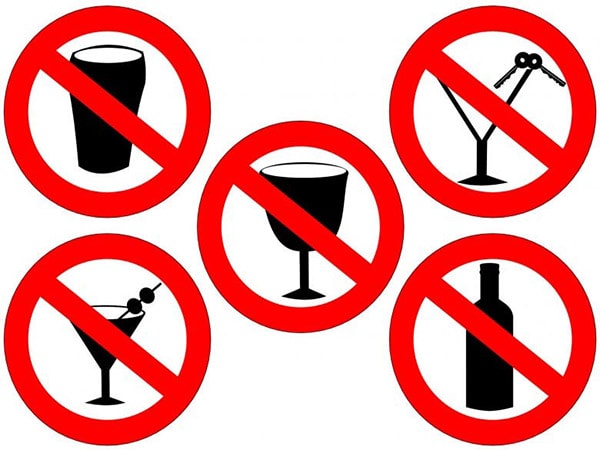
Alcohol and prostatitis
Alcohol itself does not cause the development of prostatitis, but is a factor that increases the congestion and swelling of the prostate gland and thus contributes to its development.
Sexual activity and prostatitis
There is a direct link between the intensity of sexual activity and prostate disease. Prolonged abstinence leads to stagnation in the prostate that worsens metabolism and disturbs the microcirculation of blood, promoting the development of inflammation. Regularity is more important for the health of the prostate than the intensity of intercourse. Excessive sexual intercourse, especially with different partners and not protected against infection, is the fastest way to prostatitis.

Does prostatitis affect women?
The impact on a woman’s health when her partner has prostatitis is certainly there. The prostate, together with the seminal vesicles, produces the liquid component of the sperm, which enters the partner’s genital tract during intercourse. The main danger can be a sexually transmitted infection or bacterial prostatitis, which can provoke inflammatory diseases in the woman.
Pregnancy and prostatitis
Since the prostate gland produces the liquid part of the sperm, which contains nutrients for sperm, the prostatitis often shows a decrease in the quality of sperm, making it difficult to get pregnant.

Prevention. What to do to avoid prostatitis?
Prevention is directly related to the climate in which the patient lives and his profession.
Prevention of prostatitis is to avoid and minimize the factors that contribute to the development of prostatitis. It is necessary to avoid hypothermia, alternate sedentary work with periods of physical activity. Regular sexual activity is important in prostatitis.
